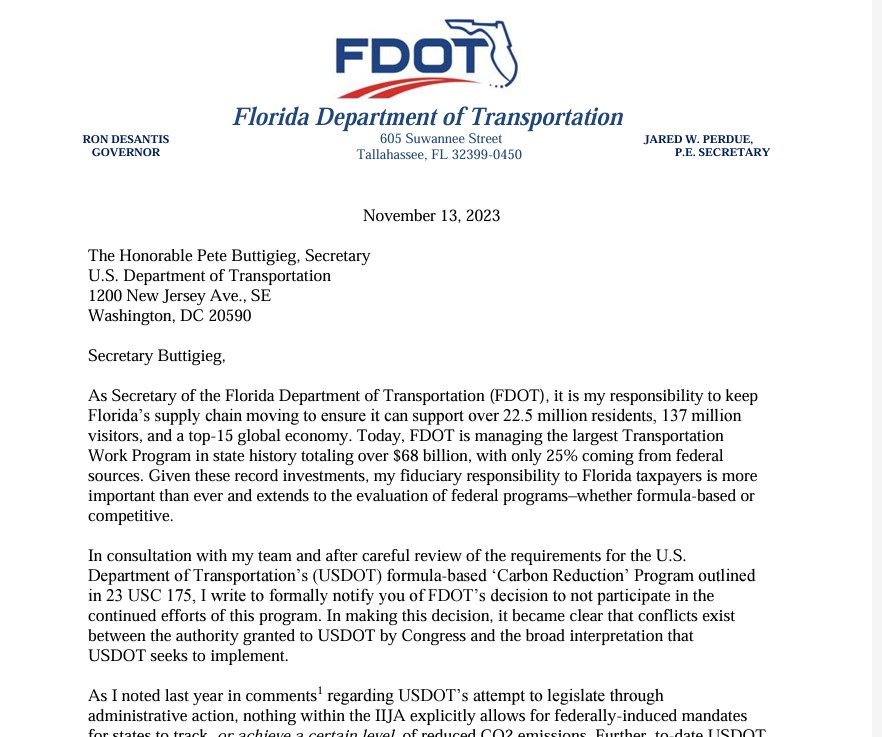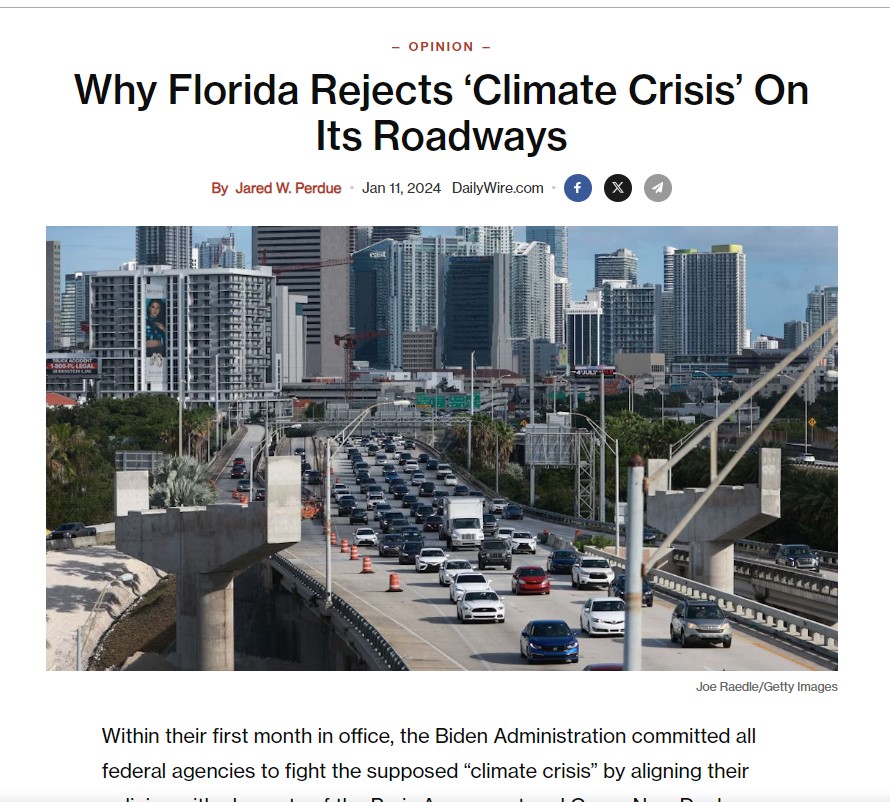Bypassing the Ballot Box
Federal overreach continues to grow, especially through administrative actions, rules, and design specifications that attempt to fly below the radar. These of course are actions that wouldn't pass at the ballot box. To name a few, check out some examples and what Florida is doing to fight back.
Politicizing Pavement
While cities and public transit agencies across America attempt to reduce travel lanes and force people out of their cars and onto buses, Florida is fighting back. In addition to instituting public meeting and voting requirements before a local entity can eliminate a travel lane, FDOT has developed updated specifications to ensure that Florida families are prioritized over the public transit lobby’s quest to eliminate passenger automobiles outright.
As local governments sought to use tax dollars to wrap government subsidized buses with social, political, and ideological messaging, Florida passed legislation prohibiting the use of tax dollars for such efforts.
When the Biden Administration updated the Manual on Uniform Traffic Control Devices to allow political symbolism on roadways, Florida updated its standards for roadway design to prevent driver distractions.
In Florida, the message is simple: Roads are designed to ensure drivers stay in their lane and that includes their political philosophy.
Keeping Florida's Transportation System Free from COVID Tyranny
Upon taking office, the Biden Administration issued nationwide mask mandates on travelers including those on airlines, rail lines, and community transit systems. Florida fought back, with Attorney General Ashley Moody leading a 23-state coalition against the Biden Administration's forced-masking of travelers which was vacated by a judge in 2022.
In 2024, FDOT doubled-down on its commitment to protect Floridians if and when these mandates were reissued by Biden's public health regime, passing legislation to withhold state funds from airports, seaports, and transit entities that violate Florida's protections against mask and vaccine mandates.
NEPA Phase 2 Rule
In May 2024, the White House Council on Environmental Quality (CEQ) finalized a regulation that will increase regulatory burdens for significant infrastructure projects and lead to substantial delays in the permitting process. This rule will now require consideration of hard-to-measure factors such as climate change, environmental justice, and cumulative impacts. Critics argue that this action aims not to protect the environment but to embolden climate groups seeking to disrupt progress through litigation. They claim that the projects they seek to prevent would create economic opportunities for Americans who need it most, all in the name of unscientific climate alarmism.
In response, Florida and 19 other states joined a lawsuit contesting the constitutionality of this federal action, challenging this overreach.



